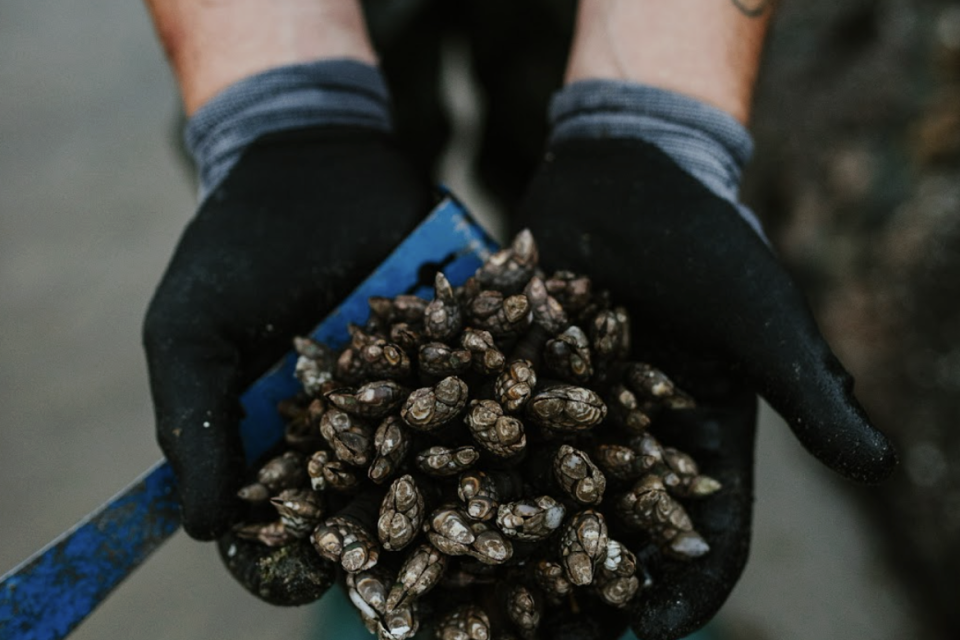Bayocean is being established to reimagine what Oregon’s coastal seafood economy can look like, building a model where transparency, local sourcing, and community benefit define the experience from ocean to plate. In a region where the majority of the seafood eaten along the coast is imported, Bayocean is charting a new path: one that restores connection between consumers and the waters that feed them.
At the foundation of this project are two separate entities, Local Bayocean LLC and Bayocean Shellfish Company. Local Bayocean is the real estate holding entity, and Bayocean Shellfish Company will be the operating entity. Collectively, we refer to them as Bayocean. This project is being brought to life by Oregon-based developer, Urban Patterns, and hospitality duo, Jacob Harth and David Sisler. Bayocean is advancing permitting, buildout, and long-lived improvements so the property returns to productive use. Their role is stewards of the project’s viability, aligning real estate discipline with the coastal community it serves.
At the heart of the operating vision are chef-diver Jacob Harth and hospitality leader David Sisler. Jacob’s life and work are anchored to Oregon’s coast. The son of a commercial fisherman, he spent his early years in family kitchens before honing his craft at restaurants including Saison in San Francisco, Oxalis in Brooklyn, and Ox in Portland. His first venture, Erizo, also in Portland, became a national benchmark for traceable seafood and earned recognition from Eater as one of America’s Best New Restaurants. That success led to Nevør, an oyster window that welcomed hundreds of day visitors to the Oregon Coast during the pandemic and became a proof point for accessible, high-quality seafood built on direct relationships with local harvesters.
David’s background complements Jacob’s. Having led operations at Michelin three-starred Saison and SingleThread, he brings an exacting approach to leadership, systems design, and hospitality culture. Together with Local Bayocean, they are creating a restaurant and retail space that blends excellence with authenticity, one that honors Oregon’s maritime history while building a viable, forward-looking enterprise.
Responsibility is embedded in the operating model. The team follows its carbon footprint closely and will eliminate single-use plastics wherever possible, replacing disposable packaging and plastic film with durable, reusable systems. They work alongside peers in the oyster and aquaculture communities to strengthen regional industry practices and ensure the long-term health of local waters. Every operational choice is designed to minimize waste, preserve resources, and reinvest value into the coastal economy.
By bringing a historic oyster house on Tillamook Bay back to life, this partnership preserves rare working-waterfront infrastructure and creates a model of coastal enterprise that strengthens livelihoods, upholds Oregon’s maritime heritage, and reconnects people to the living systems that sustain them.
Ecological, Social, and Economic Stewardship Practices
Ecological Stewardship
- Ensuring visibility into every step of the sourcing process, including the captain's name, fishing vessel, harvest location, and methods of harvest before making a purchase.
- Sourcing from farmers and fishermen who utilize practices that avoid depleting wild populations and ensure non-intrustive methods to keep the ecosystem undisturbed.
- Exemplified by Hayes Oyster Company, an oyster farm located in the bay whose practices include hand-harvesting oysters one by one. Farmed oysters avoid depleting wild populations and actively contribute to the health of the bay by filtering and purifying the water.
- Sourcing wild clam harvests, where the use of gentle, non-intrusive methods ensures the bay’s delicate ecosystem remains undisturbed.
- Incorporating underutilized species in the restaurant menu.
Social Stewardship
- Creating a transparent, community-rooted food supply chain that connects people directly to the producers in their community.
Economic Stewardship
- Setting a new standard for supply chain transparency, with over 80% of its restaurant and retail products sourced directly from local producers and suppliers. This includes seafood, grain, produce, dairy, wine, beer, and locally foraged ingredients.
- By committing to local sourcing, Bayocean will increase additional funds generated for the local economy. Currently over 90% of the seafood sold and consumed on the Oregon coast is imported from distant markets. It’s estimated that this results in a total economic leakage of $252 million a year (Source: Oregon Coast Visitors Association). Research indicates that just a 10% increase in local seafood usage on the Oregon Coast would generate an additional $90 million for local economies (Source: Radtke, Hans & Davis, Shannon. 2022).
- Providing living wage jobs and on-site employee housing, addressing the critical lack of affordable housing in the area.
- Creating sustainable employment opportunities to ensure more money circulates within the local economy.

